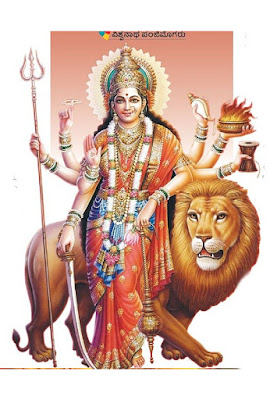|| śrīmad vālmīkirāmāyanam ||
rāmo vigrahavān dharmaḥ sādhuḥ satyaparākramaḥ |
rājā sarvasya lokasya devānāṃ iva vāsavahaḥ || 3-37-13
Re-ordered word-by-word meaning
rāmaḥ vigrahavān dharmaḥ - Rama is the personification of righteousness.
sādhuḥ satyaparākramaḥ - He is virtuous, and by upholding Truth is supremely valorous,
rājā sarvasya lokasya - such that he is naturally the supreme king of all mankind,
devānāṃ iva vāsavahaḥ -just as Indra is indubitably the lord of all the gods.
While extending everyone the Vijayadashami greetings, I am quoting this shloka. The words Ramo Vigrahavan Dharmah are very often heard in every discussion of Rama's pesonality. Do you know who said these words in the Valmiki Ramayana?
Be surprised: it is Mareecha! Yes, the same Mareecha driven away by a young Rama during the Vishwamitra sacrifice, and who is compelled by his nephew Ravana at "gun point" to take the form of a golden deer to lure Sita and Rama. Mareecha tells Ravana that it is extremely foolhardy to try and trick Rama, for he is righteous and powerful, and the natural lord of all.
I am taking a sabbatical for 7 days, see you soon!
PS: The picture is of the latest postage stamp collection released by PM Sri Narendra Modi recently in Varanasi.











